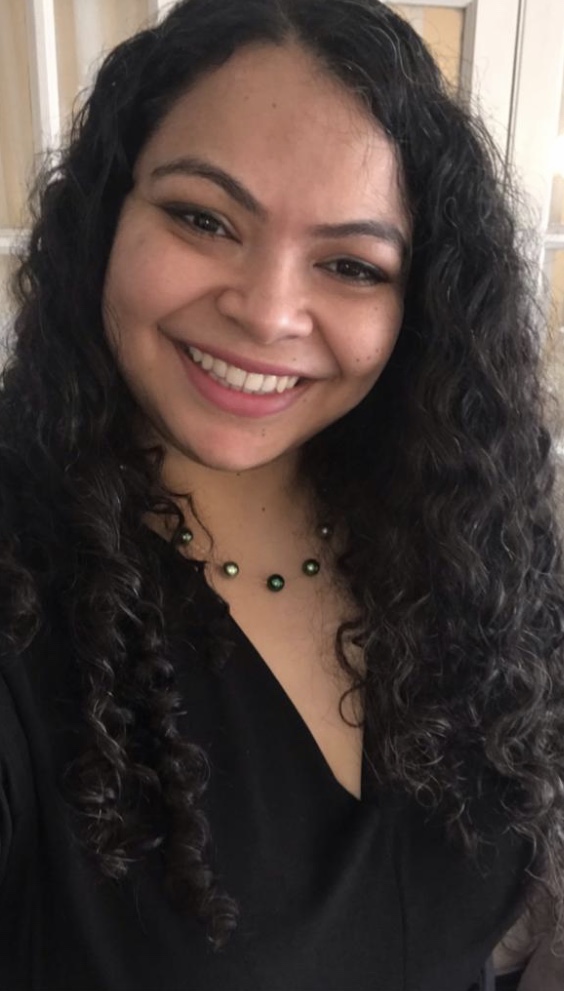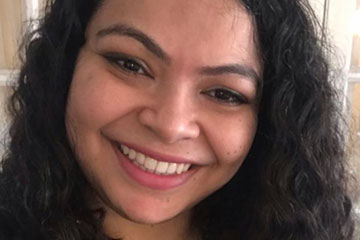May is Asian, Pacific Islander, Desi and Asian American Heritage Month. Throughout the month, The Daily will highlight members of the university community who are of Asian, Pacific Islander, Desi and Asian American heritage to celebrate their accomplishments as members of the campus community and shed light on their experiences at CWRU.

One of Pooja Khatija’s fondest memories growing up in Mumbai, India, is of taking part in Holi, an ancient Hindu festival that celebrates spring, love and new life.
She remembers preparing for the event a day in advance, filling balloons with colored water and arranging Holi colors, each of which symbolize a force in life (such as happiness, fertility, compassion and mystery).
When the day finally arrived, it would begin with Khatija wishing the elders a happy Holi as she put some red color on their foreheads. She would then change into worn clothes and take to the streets, water balloons at the ready, prepared to give the entire neighborhood—and its residents—a burst of color.
“The best part would be the sweets that we ate after being tired of playing and having showered,” she explained. “Nothing can match that feeling after the joyous Holi celebration.”
While she may celebrate Holi differently here in Cleveland, Khatija, a PhD candidate in organizational behavior at Case Western Reserve University, has relished sharing aspects of her Indian heritage with her peers—who she said have taken a special interest in learning more about her culture.
“The kind of cultural humility that my peers have shown has played an important part in me feeling [I belong] here at CWRU,” she noted. “The events for celebrating Diwali and Holi [organized] by the Indian Student Association at CWRU have also provided wonderful opportunities to celebrate my culture with my peers.”
Advancing Equity
Khatija first learned about Case Western Reserve within India’s academic community. The organizational behavior PhD program at Weatherhead School of Management is the first of its kind in the U.S., and, according to Khatija, the impactful work of its faculty, who specialize in her research areas, is known worldwide.
She made it a goal to work with them. Specifically, she set out to work with Professor Diana Bilimoria, whose research focuses on leadership, governance, gender diversity and inclusion in organizations—areas that Khatija grew passionate about in India.
Growing up, Khatija was always conscious of the power dynamics between people from different backgrounds and social classes. After she earned her master’s in business, she went on to work with a consulting firm that trained graduates from elite schools in India.
“I started noticing that even at these elite institutions, students from certain backgrounds were not getting the elite job opportunities they deserved because of their social identities and backgrounds,” she explained. “These included candidates who were from rural areas, lower castes and women.”
Khatija was able to work with the institutions to set up training workshops for students with marginal identities, and soon realized there was a need for systemic change in how companies recruit people.
“Becoming a researcher and studying these issues became a path for me to have a stronger voice in shaping company policies,” said Khatija, who is a research scholar in the areas of diversity, equity and inclusion.
Khatija now teaches an undergraduate course, “Leadership in Diversity and Inclusion,” at Weatherhead. She’s also the lead facilitator for the Professional Development Scholars Program for the Women in Tech Initiative at Case School of Engineering. Additionally, she is a part of the International Students Advisory Council.
Upon earning her PhD, Khatija plans to pursue a career in academia—and she hopes her research will influence organizational policies and advance societal equity for future generations.

